This book event is through my collab as a tour host for The Coffee Pot Book Club.
Unspoken blog tour includes an exclusive excerpt at Sarandipity’s. Enjoy your sneak peek, leave a comment of your choosing (like how many points you’ve earned in this month’s competition), share on social, and subscribe to Sarandipity’s for more bookness.
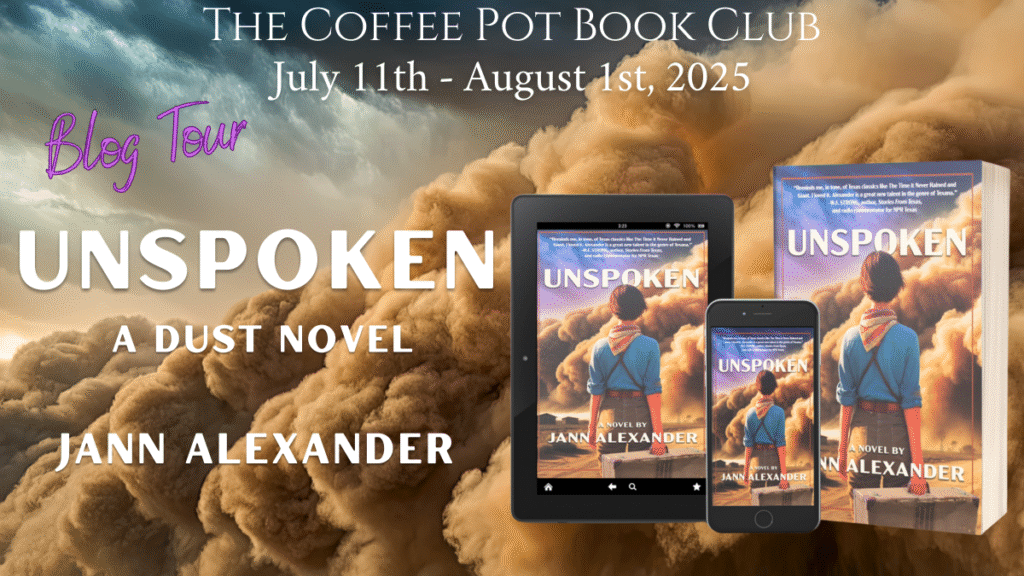
Your message has been sent
Book Title and Author Name:
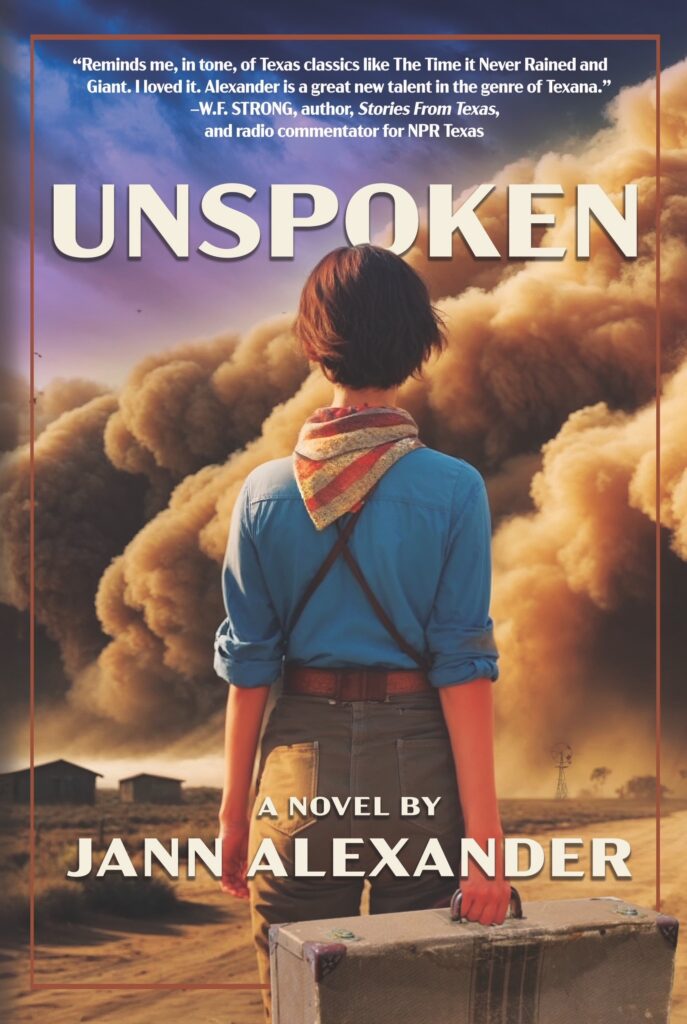
Unspoken: A Dust Novel
by Jann Alexander
Blurb:
A farm devastated. A dream destroyed. A family scattered.
And one Texas girl determined to salvage the wreckage.
Ruby Lee Becker can’t breathe. It’s 1935 in the heart of the Dust Bowl, and the Becker family has clung to its Texas Panhandle farm through six years of drought, dying crops, and dust storms. On Black Sunday, the biggest blackest storm of them all threatens ten-year-old Ruby with deadly dust pneumonia and requires a drastic choice —one her mother, Willa Mae, will forever regret.
To survive, Ruby is forced to leave the only place she’s ever known. Far from home in Waco, and worried her mother has abandoned her, she’s determined to get back.
Even after twelve years, Willa Mae still clings to memories of her daughter. Unable to reunite with Ruby, she’s broken by their separation.
Through rollicking adventures and harrowing setbacks, the tenacious Ruby Lee embarks on her perilous quest for home —and faces her one unspoken fear.
Heart-wrenching and inspiring, the tale of Ruby Lee’s dogged perseverance and Willa Mae’s endless love for her daughter shines a light on women driven apart by disaster who bravely lean on one another, find comfort in remade families, and redefine what home means.
Buy Links:
Universal Buy Link: https://books2read.com/u/mqP7ke
Book Funnel Link: https://buy.bookfunnel.com/h3rt6fn7vd
Author’s Website: https://www.jannalexander.com/buy-unspoken
Author Bio:
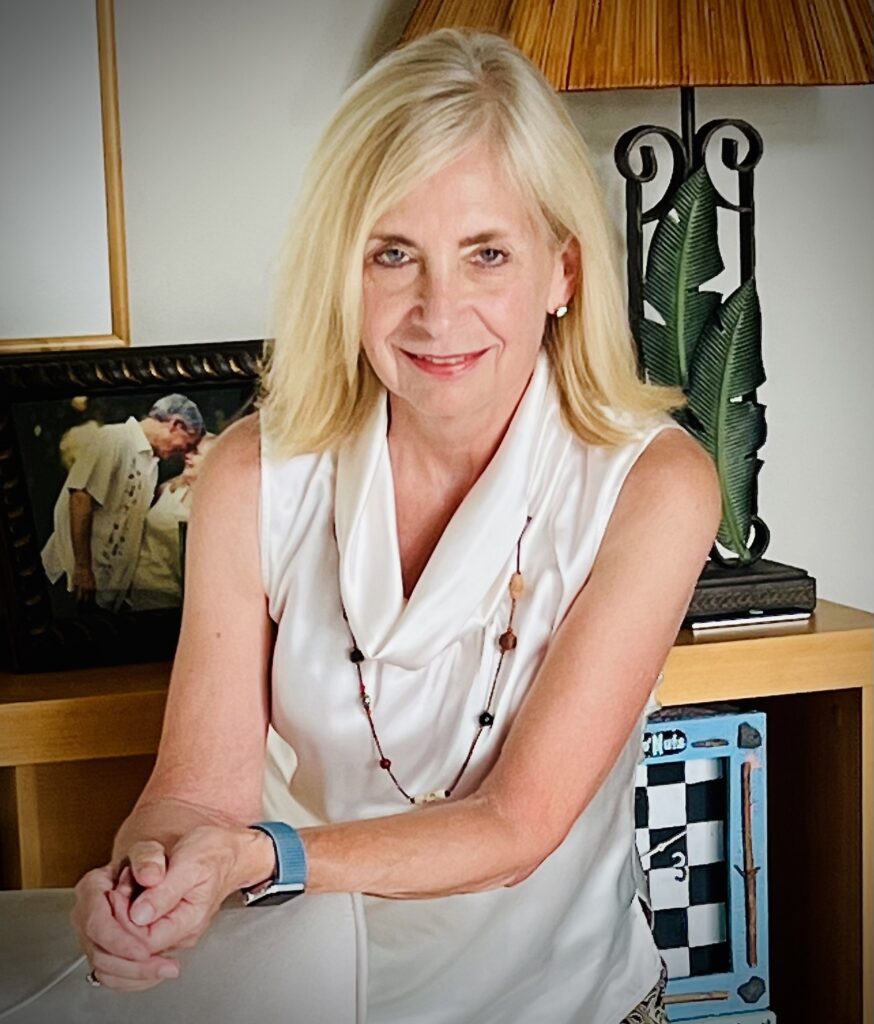
Jann Alexander writes characters who face down their fears. Her novels are as close-to-true as fiction can get.
Jann is the author of the historical novel, UNSPOKEN, set in the Texas Panhandle during the Dust Bowl and Great Depression eras, and her first book in The Dust Series.
Jann writes on all things creative in her weekly blog, Pairings. She’s a 20-year resident of central Texas and creator of the Vanishing Austin photography series. As a former art director for ad agencies and magazines in the D.C. area, and a painter, photographer, and art gallery owner, creativity is her practice and passion.
Jann’s lifelong storytelling habit and her more recent zeal for Texas history merged to become the historical Dust Series. When she is not reading, writing, or creating, she bikes, hikes, skis, and kayaks. She lives in central Texas with her own personal Texan (and biggest fan), Karl, and their Texas mutt, Ruby.
Jann always brakes for historical markers. (Sarandipity’s note – SO DO I!)
Author Links:
Website: https://www.jannalexander.com/
Facebook: https://www.facebook.com/JannAlexanderAuthor
Instagram: https://www.instagram.com/jannalextx/
Bluesky: https://bsky.app/profile/jannalextx.bsky.social
Pinterest: https://www.pinterest.com/jannalextx/
Book Bub: https://www.bookbub.com/profile/2708203210
Book Bub for Unspoken: https://www.bookbub.com/books/unspoken-a-dust-novel-the-dust-series-book-1-by-jann-alexander
Amazon Author Page: https://www.amazon.com/author/jannalexander
Goodreads: https://www.goodreads.com/jann_alexander
Goodreads for Unspoken: https://www.goodreads.com/book/show/230163000-unspoken
Excerpt 2:
RUBY LEE
“It’s bound to rain soon, Ruby,” Will said, the doubt apparent in his eyes before they skated sideways. “That’s what Pa says, you know, next year—”
I sent him the stink eye. I’d never seen any rain in my lifetime, and he knew it, being three years older than me. I’d grown outta diapers listening to Will question Pa’s stubborn belief that next year, the land would make good again.
“Lookit here, Ruby,” Will pleaded, crouching to tuck his finger under my chin. I gave him no quarter, wouldn’t look him in the eyes while he kept at his lies. “Pa will send for you, soon as the dusters are gone for good and the air’s clear. So’s you can breathe again.”
He had me there, didn’t he. How could I ever go home when the very air I breathed came at my lungs like an enemy invader?
As it was, though, I hadn’t a penny to my name except for the twenty dollars Will had left me, all in one-dollar bills, which he’d told me to save for a rainy day.
If I’d been speakin then, I’d have asked him, “Will, when do you ever expect to see a rainy day?” When Will stuffed those dollar bills in my pocket, I didn’t let him know how he tore my heart; I didn’t say thank you or nuthin.
I was righteous mad at him for leaving me with Cousin Bess, smiling as he backed away like his eyes had no tears coming. I had no words for him, neither.
But no sooner than he’d left Waco, it did rain, steady and all day long, and it was the first summer rain I’d ever seen in practically eleven years on earth. I ran outside to feel it all over me, I whirled and twirled around in it, I let rain run down my skin and chill me, I let it drench my clothes and hair and fill my shoes. Bess shouted from her covered porch to come in. I ignored her.
“You’ll catch your death, come in, Ruby,” she insisted. She splashed through the waterlogged grass with a big black umbrella and dragged me inside. Weary flowers in the beds lining the yard had raised up their heads, their petals thirsty for rain, opening into subdued versions of the brilliant colors they would become. She didn’t notice them for scolding me. Holding my arm, she fussed. “Why, you’re shivering!”
Inside, she dried me with a soft towel and left my clothing in a puddle of water near the deep-pile foyer rug. “Let’s get you upstairs into some dry things.”
All I could think when she led me to my bedroom was how the rain would change everything. The farm would be saved. The ’36 winter wheat would make a crop. Pa would get his mules and cattle back. Momma could raise her vegetables again. I could go home.
I became a fastidious student of the Old Farmer’s Almanac, and a regular consumer of the farm report and weather conditions published in the Waco Tribune-Herald. That was before I even learned to read, but I stared at those pages long enough every day, the numbers started making some sort of sense to me. Nonsense was more like it; reading them nowadays, I realize I made them say what I wanted them to say: Nine inches of rain fell in July, a record for Dallam and Hartley Counties. August saw ten more. Twelve inches is predicted the first weeks of fall. The dust storms of 1929-1936 are a thing of the past as the moist soil holds and crops take root.
On the day I read that forecast, I promised myself I’d take the next train back. I kept my cardboard suitcase packed and ready.
The thing that near startled me into speaking again was the colors. I took in all the colors everywhere, and I hardly had the names for ’em, accustomed as I was to the brown life I’d led back home. I wanted to exclaim at all of them, ask Bess how many kinds of blues were there, what were the reds of her rosebushes called? How many words for green did they have—for the ones more yellowish, and the greens with more blue in them? The aquamarines, the deep purples, violets, crimsons—all names I learned later on—what were they called? I couldn’t sleep past sunrise, I was so excited to look out my upstairs window at the colors each morning.
But I was so mad, I refused to speak. I didn’t appreciate my four-poster bed with satiny pink bedding and soft downy pillows. I didn’t want the fancy clothes Bess dressed me in, or the special outfits with hats for Sundays, nor the manners she tried to teach me. My heart hurt too bad. I made myself believe being mute was justification for what was done to me. I didn’t utter a word.
If I confounded Bess by staying silent, she’d get so exasperated she’d send me home.
I learned the colors instead by studying the smooth color plates in her flower books. She had a collection of them in her library, lined up on a set of golden oak shelves built into the wall opposite her black lacquer piano. Each volume I opened yielded a heady odor of ink and paper in one whiff. She didn’t mind me using her books, and sometimes she’d sit with me and read from them, trying to teach me, asking me to repeat the words back to her. But I refused to talk. I made her think I was too pained to speak. Which in a way, I was.
Bess got impatient with me sometimes, but more than that, she must have felt just plain inadequate. Cousin Bess was a widow who’d never had a child; she’d wanted one some kinda awful, you could tell. She was proud of her husband who kept his bank afloat after the crash, but the bank holiday took the wind out of him, she’d say. He musta left her more money than she could say grace over. But I wouldn’t let her spoil me.
I contrived to make her hate me, so she’d send me home.
And I didn’t understand what the consequences would be for what I was doing, by not doing what every child can do: talk.
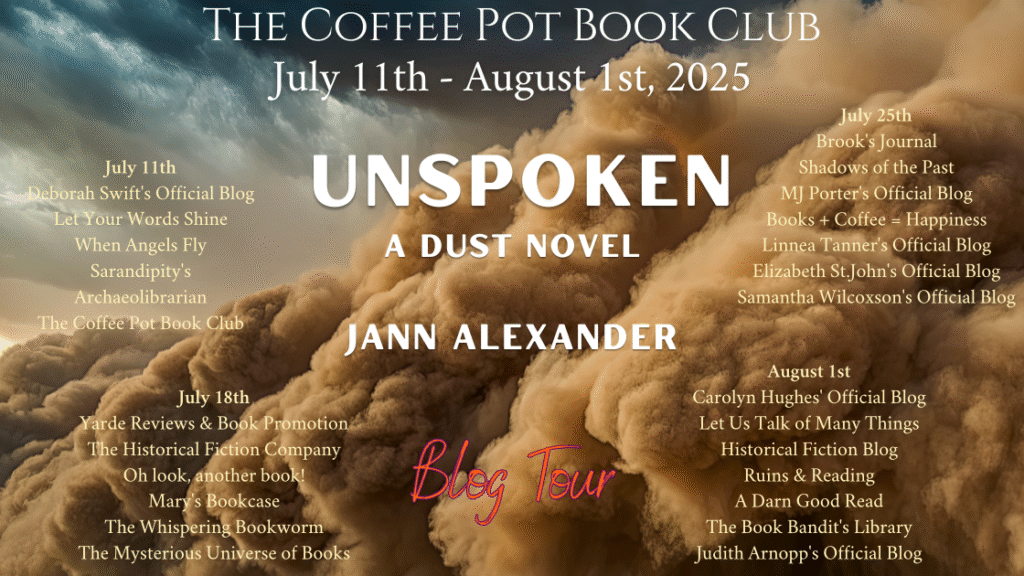
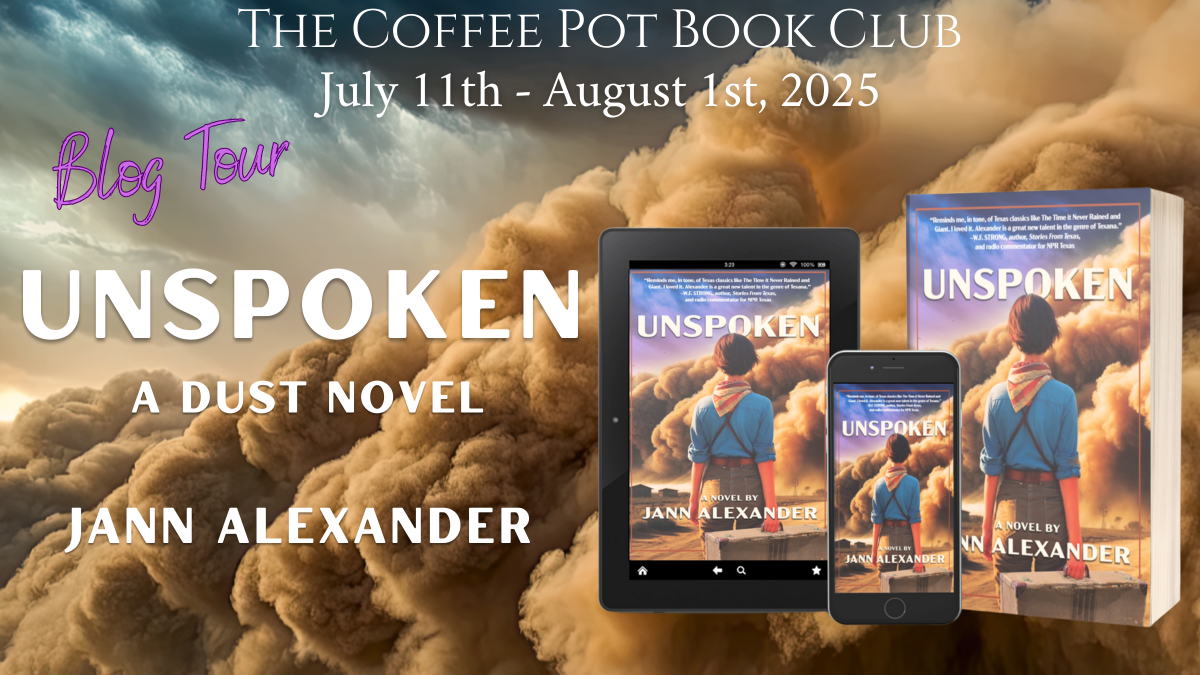
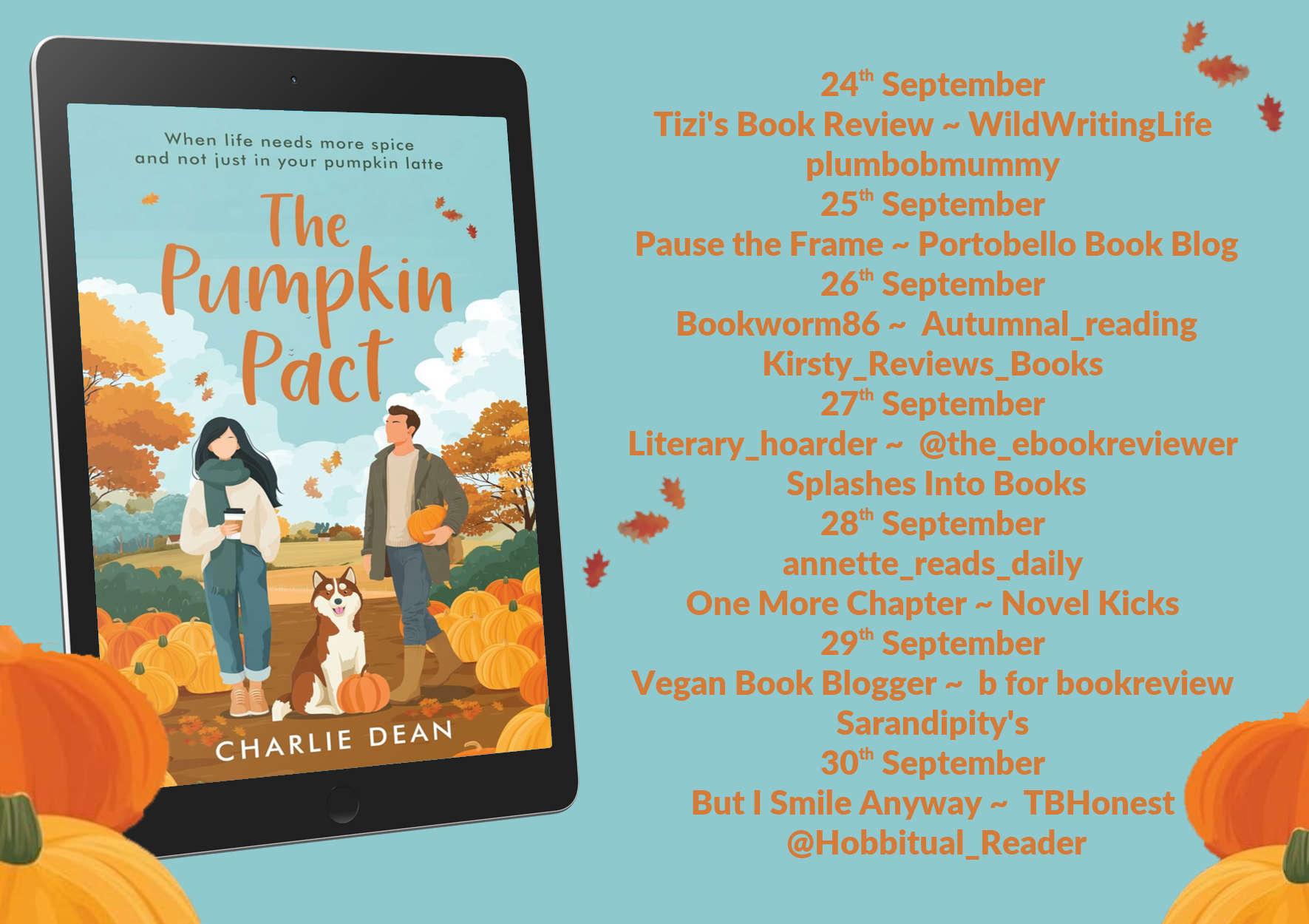
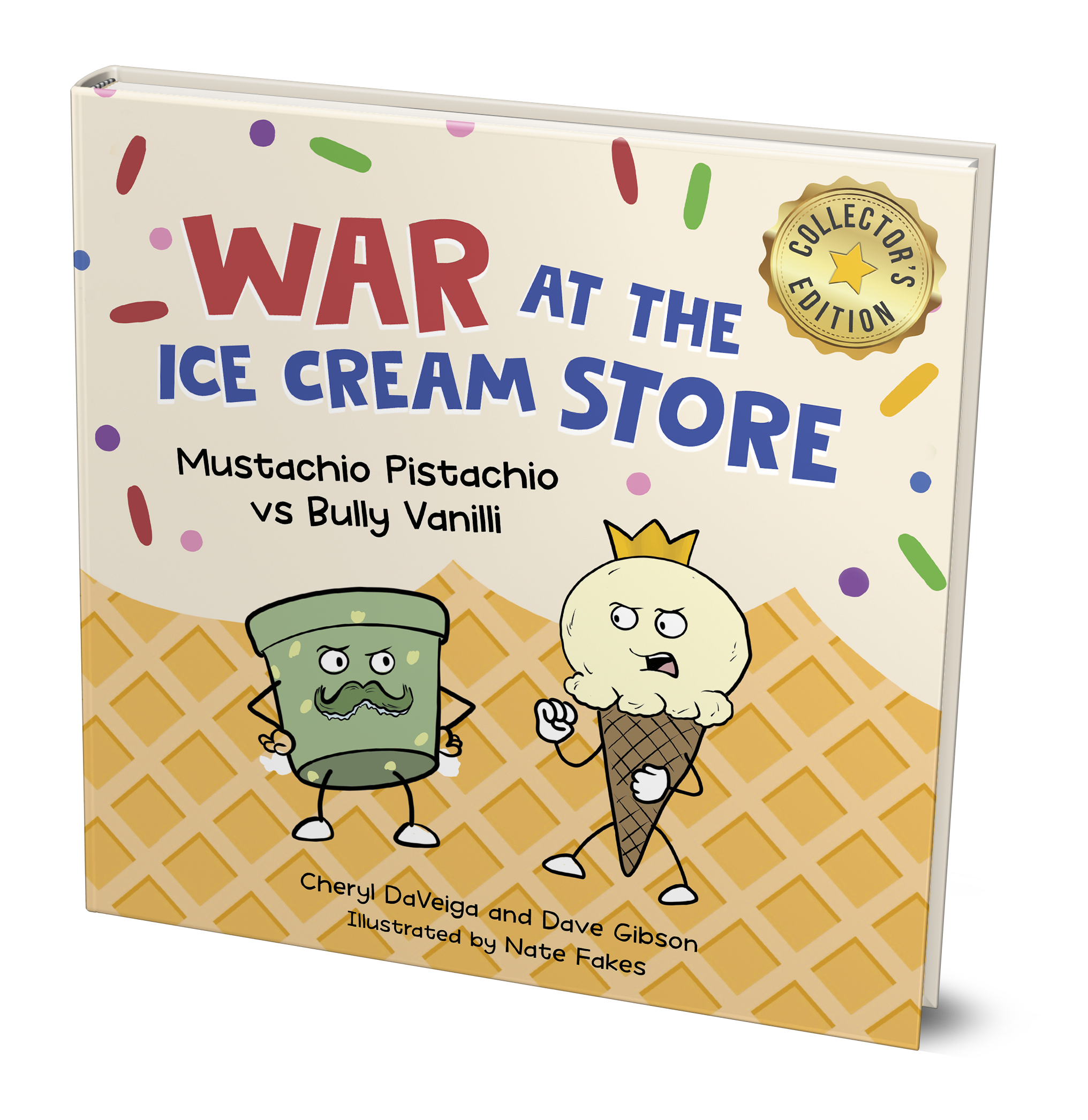


Thanks so much for hosting Jann Alexander today, with an excerpt from her compelling novel, Unspoken.
Take care,
Cathie xo
The Coffee Pot Book Club
I am so appreciative you shared your space with Unspoken today! Thank you for featuring my novel, and sharing an excerpt — all best, Jann Alexander
This design is wicked! You definitely know how to keep a reader amused. Between your wit and your videos, I was almost moved to start my own blog (well, almost…HaHa!) Excellent job. I really loved what you had to say, and more than that, how you presented it. Too cool!